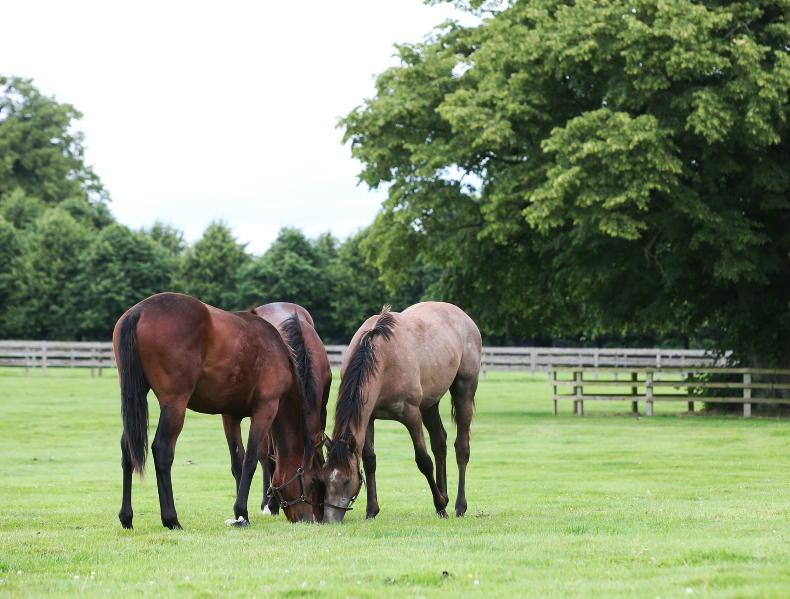MANY horse owners will opt to have their horses turned out 24/7 during the summer months. This has many benefits to both horse and owner, however the correct steps must be taken in order to ensure the health and well-being of your horse.
Soil, water and grass sampling as detailed above are an excellent place to start when it comes to optimising your grassland.
In addition to providing a safe and well-maintained field environment, horse owners who are keeping their animals in a field full-time should ensure that the horse gets the right level of nutrition, exercise, care and supervision.
The following is a guide to caring for the field-kept horse this summer.
It is important that the field is visited at least twice per day, to check the horse and inspect the field.Droppings should be removed from the field and shelters on a regular basis – at least once per week is recommended. This is a good practice to get into, as it helps to prevent paddocks from becoming ‘horse-sick’ and also helps to prevent the spread of worms.Good pasture management is essential. It is important to rest some of the land, to enable it to recover and new grass to grow. Dividing the field or strip-grazing both work well.If the horse is not rugged, keep grooming to a minimum. This will allow grease in the coat to provide some natural protection.Horses benefit from consistent human contact and handling. Spend time interacting with your horse so that the animal is always happy to be caught.Flies can be a nuisance for horses during the summer months, particularly if a horse suffers from sweet itch. If your horse is living out 24/7, you may want to consider putting a fly sheet on or a mask to protect your horse from fly bites. There are many fly repellent sprays and insecticides available but some are more effective than others. Remove droppings frequently from the paddock and shelters to avoid attracting flies and position the muck heap away from where the horse is kept where possible.
Make sure fresh, clean water is available at all times. Water troughs must be kept full, clean and fresh.Feet should be picked out and inspected daily, and seen every six to eight weeks by a qualified farrier.Horses are herd animals and need compatible equine companionship. It is not advised to turn horses out on their own.
